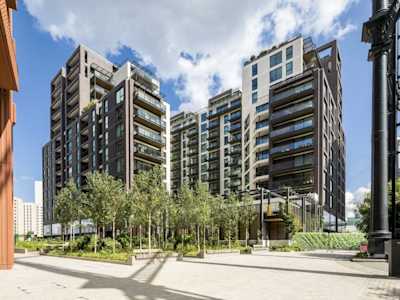Why Should you Invest in London Property?
Is London Property a Good Investment?
What makes London so great?
London is one of the world’s most visited destinations. In 2019 it welcomed 21.7 million international visitors, all eager to soak up the history and culture of the city. It’s possible there is no other city where you will be able to sample almost every cuisine in the world, visit some of the greatest historical buildings in the world and watch the best theatre shows in the world in one day.
People move to London because they want that experience at their fingertips. They are not satisfied with a “once in a lifetime” trip to London. They want to be a short tube ride (London Underground) away from its attractions. Coincidentally, another thing that makes London so great is its transport network. According to a poll conducted by TripAdvisor, people from outside of the UK thought the system was one of the safest and most efficient in the world. Since the 1990s London’s population has been growing, and it hit a new high of 8.9 million in 2018. By 2030, London’s population is expected to reach almost 10 million.
London’s Cultural Offerings
London has so much to see and do. As Dr. Samuel Johnson once said, “when a man is tired of London, he is tired of life”. Whatever your interest, there is something that accommodates it in London.
Most museums are free to access in the UK, and London is home to some of the world’s best museums. The British Museum, Victoria and Albert, Science Museum and Design Museum can justly claim to be the best in their field.
West end theatre, along with New York City’s Broadway, is considered to represent the highest level of commercial theatre in the English-speaking world. Long-running shows include Les Misérables and Cats In a similar creative vein, London encourages residents to show off their creative and artistic flair. Whether it is through London Fashion Week or through its music venues such as O2 Arena, Roundhouse and Alexandra Palace.
London is also the UK’s political capital. MPs from across the UK congregate in the Houses of Parliament, and it is also home to the Prime Minister. But government representatives are not the only people who have a platform to voice their opinions, Speakers’ Corner in Hyde Park has been around since the 1800s and offers citizens a platform to debate and conduct public speeches.
In terms of employment, London attracts some of the world’s top talent and highest paid workers. The City of London and Canary Wharf are home to many multinational banks. Not only in the banking world, but most UK media and technology jobs are based in London, as well as academia roles in the capital’s universities and exciting new start-up companies.
The fact that London offers the chance to work for such well-known institutions and newer progressive start-up companies makes it an exciting and desirable place to be. It also earns its place as the largest city by GDP per capita in Europe. It also contributes around 22% of the UK’s total GDP.
Start your property journey...
Ongoing demand for housing in London
According to the mayor’s recent assessment of the London property market, approximately 66,000 new homes per year need to be built to satisfy demand. As we mentioned before, in 2018 London’s population reached a high of 8.9 million people, putting more strain on housing. Although in 2019 the number of new registrations rose 37%, 21,726 new homes not enough to satisfy demand, even if other buildings are being repurposed for residential use. This has made property in London a scarce commodity and those who own it find they have made significant profit, either through rent or capital growth.
House Price Increase in London
London offers so much in terms of culture and employment that it is no wonder people want to live close to the excitement. This has caused property prices to skyrocket as the supply of housing has not kept in pace with demand. According to Halifax, since the millennium house prices in Greater London have increased by 239%, beating the national average of 207%. In London, homebuyers were paying £157,453 on average in 1999. In 2019 the average was £375,983. Outside of London, the average price paid in 1999 was £91,199, compared to £279,997 in November 2019.
In London, property prices are 14 times the average salary according to research conducted by eMoov. In central London it is even higher, at 16 times the average UK wage. Mortgages in the UK are capped at four-and-a-half times your annual income. This means that unless you earn significantly above the average wage, or you have a sizeable deposit, owning property in London is out of reach even if you plan to buy as a couple and have to incomes to account for.
The difficulty is compounded by the fact that it is difficult to save for a deposit whilst paying rent, as rents in London are high. The unaffordability issue is a significant problem for a significant number of people, and it is why people are considering London commuter belt property.
How London’s Unaffordable Property Market Creates Opportunity
Since house prices have become increasingly unaffordable, particularly in inner London where property prices stand at £733,000, more people have been moving to London’s commuter belt. Property in commuter towns is often more affordable and offers better value for money. According to Lloyd’s Bank, those who work in central London can save up to £483,342 by commuting up to an hour to London each day rather than renting in the capital.
If you are looking to attract young professional tenants who work in London, you may want to consider buying in commuter towns. They offer an affordable alternative, and when it comes to selling it on there will be more people who can afford to buy.
London Commuter Town Property
Many of the most affordable London commuter towns in terms of property and then travel costs are based in Essex, such as Harlow, Grays and Basildon. Luton in Bedfordshire as also starred as one of London’s top commuter towns in terms of affordability. Luton is just 23 minutes from King’s Cross by train, which means it is easier to access parts of central London from Luton than it is from some London suburbs. Average property prices in Luton are £261,725, which is 5.4 times average earnings.
Perhaps it does not come as a surprise, but when things are more affordable and people have a higher amount of disposable income, it affects mental wellbeing. Studies have found that health, marital status, and economic activity are the three biggest factors that impact life satisfaction.
Luton scores highly for employment and economy, and rents are affordable whilst salaries are comparable to London. A long commute affects wellbeing and it is a reason many are put off from buying in commuter towns, however, Luton is just 23 minutes from King’s Cross. So, the commute time is unlikely to have that much of an impact on wellbeing.
Start your property journey...
If the Coronavirus pandemic has taught us one thing, it is that a lot of jobs can be done from home, and flexible working will become the norm in the future. This means that people would not necessarily need to live in London close to their place of work and makes commuter towns more attractive.
Recommended Properties
Related Articles
Are you curious?
Speak with an experienced consultant who will help identify suitable properties that will capture the exciting fundamental mentioned here.
WANT TO LEARN MORE ABOUT PROPERTY INVESTMENT?
SIGN UP TO OUR NEWSLETTER NOW!

